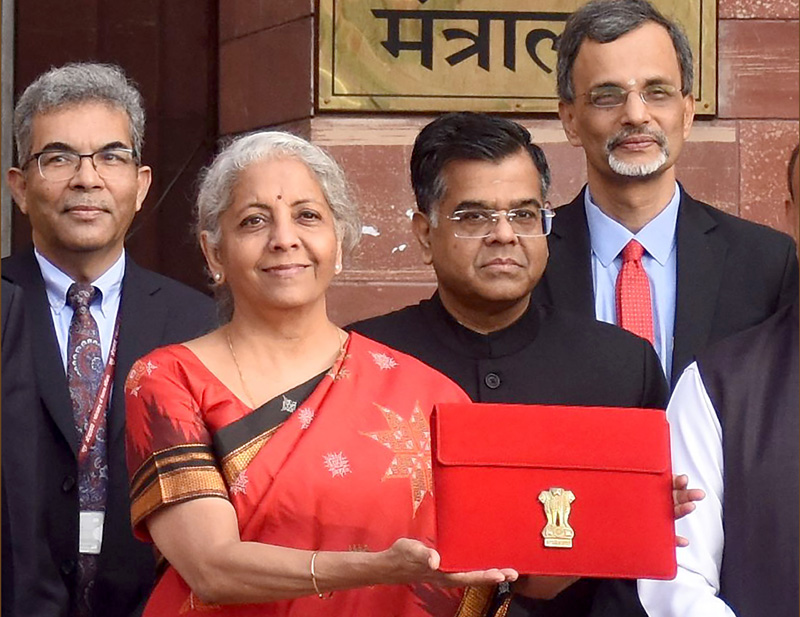
Budget 2025 changes government may consider: ICRA Analytics report
Mumbai: The presentation of the Interim Budget on February 1 stands as a critical event in the financial calendar, leading to sharp speculations about the government's spending, fiscal deficit, and individual taxation.
With the upcoming election year on the horizon, Finance Minister Nirmala Sitharaman is scheduled to present the interim budget on February 1, 2024.
The full budget for the fiscal year 2024-25 is expected to be unveiled by the new government in July, after the Lok Sabha elections.
According to an ICRA Analytics, the removal of security transaction tax (STT) will attract more investors to invest in domestic equity markets. The markets have had this demand for removal of STT for a few years now and as the GST collection went up, this demand has again gained traction.
A relief from double taxation on dividends will be appreciated by the markets, it said. The company pays tax on its profit and at the same time, the government levies tax on dividends in the hands of shareholders resulting in double taxation on dividends.
The government may consider raising the pension floor for the unorganised sector workers under its flagship scheme, the Atal Pension Yojana (APY) as the current amount may not attract enough potential subscribers to enrol, ICRA Analytics said.
Senior citizens rely heavily on annuity income during retirement years. Considering the rise in medical expenses and the financial well-being of senior citizens, the government may accord tax-free status to annuity income from NPS. Also, an investment of Rs.50,000 a year is unlikely to yield much pension and the limit may be enhanced to Rs. 1 lakh.
A separate tax deduction for life insurance premium instead of clubbing it under Section 80C will improve the penetration of insurance products in the country and encourage people to secure their family’s financial future by investing in life insurance. Also, the government may reconsider the 18% Goods and Services Tax (GST) charged on health insurance policies.
Markets seek a more comprehensive policy on cryptocurrency regulation. A regulatory framework may result in more inclusive participation in the crypto market.
The stage is set for sovereign green bonds to make a comeback in the
Budget as green bonds address the funding requirements for wind, power and hydropower sectors.
A mega capital outlay may be earmarked for energy transition and net-zero objectives. The government is expected to focus on new-age fuels — green hydrogen, ethanol, and other biofuels.
The government may consider addressing the difference in tax treatment between equity mutual funds and Unit-linked Insurance Plan (ULIP). Also, an equity Fund of Fund needs to be at par with equity-oriented mutual funds for taxation.
According to ICRA Analytics, the capital gains taxation structure may be simplified by introducing a uniform holding period across domestic equities and mutual funds. Uniformity in tax treatment is expected to encourage higher compliance. However, it needs to be noted that equity investors take higher risks than other investors and hence the same needs to be taken care of accordingly.
The tax amendment to the Finance Bill last year created a level playing field between bank deposits and debt mutual funds. However, an investor in fixed deposits pockets assured returns irrespective of interest rate movements while a debt fund investor is exposed to not only interest rate risk, but credit risk as well in case the issuer defaults.
Also, with the removal of earlier indexation benefits, global equity funds, equity fund of funds, gold funds and hybrid funds holding less than 35% in equities turned out to be tax-unfriendly and suffered collateral damage. Thus, the tax change might be revisited.
Support Our Journalism
We cannot do without you.. your contribution supports unbiased journalism
IBNS is not driven by any ism- not wokeism, not racism, not skewed secularism, not hyper right-wing or left liberal ideals, nor by any hardline religious beliefs or hyper nationalism. We want to serve you good old objective news, as they are. We do not judge or preach. We let people decide for themselves. We only try to present factual and well-sourced news.







